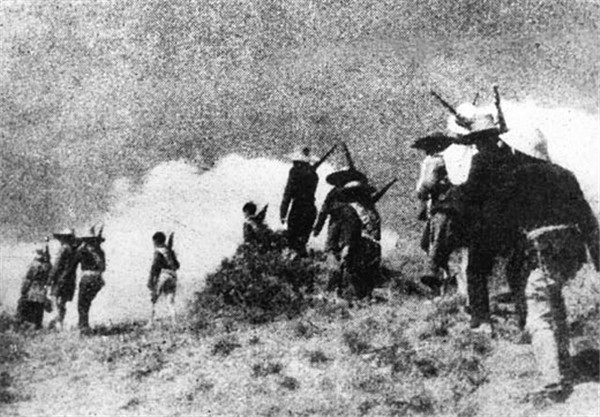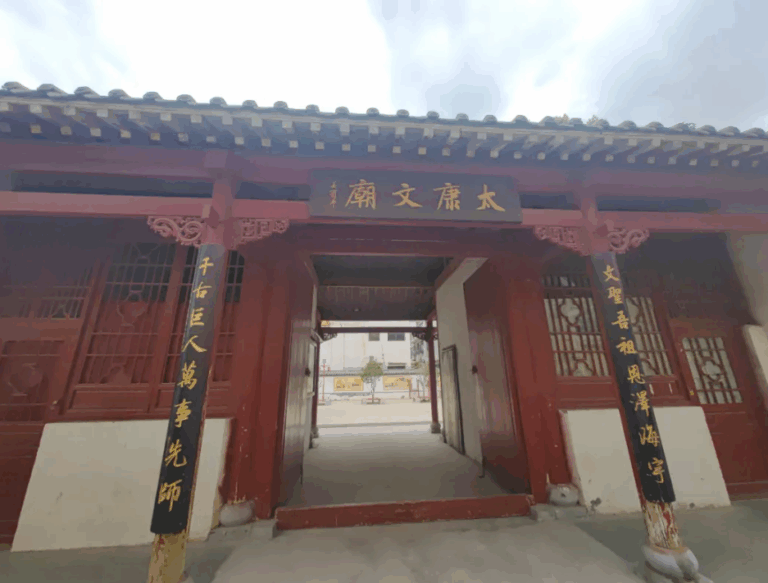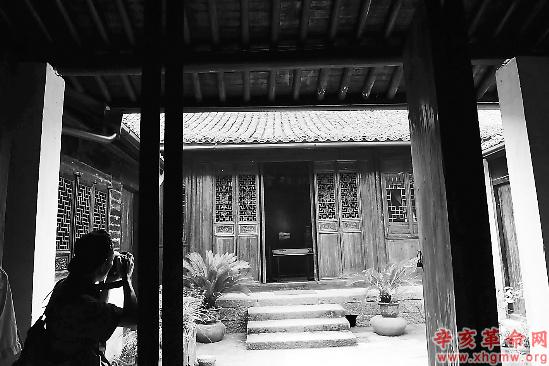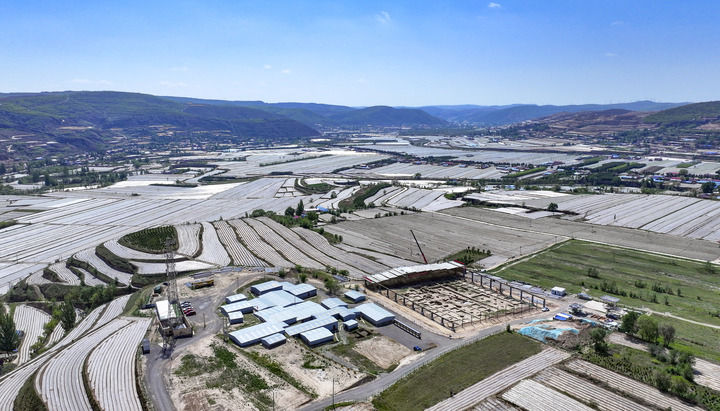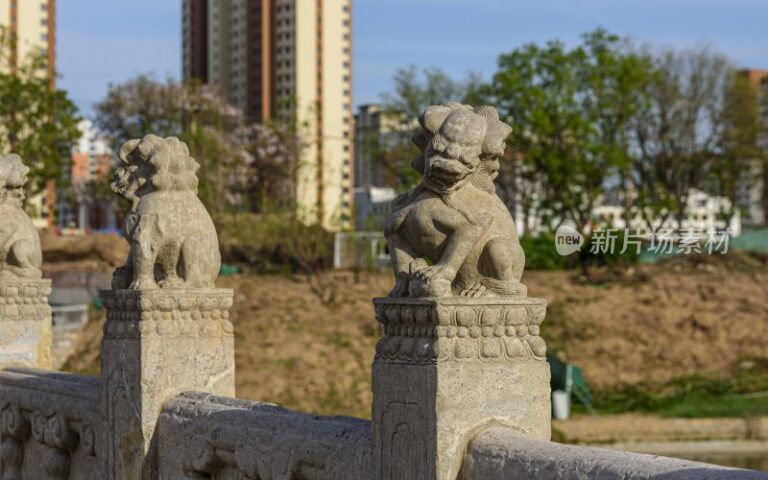Experience Nature at Yiyang Taoshu Mu: A Must-Visit Destination in Hunan
An Essential Guide to Visiting Yiyang Taoshu Mu
In This Guide
- An Essential Guide to Visiting Yiyang Taoshu Mu
- The Rich History of Yiyang Taoshu Mu
- Main Highlights: What to See at Yiyang Taoshu Mu
- Planning Your Visit: A Practical Guide
- Tickets, Hours, and Booking
- How to Get There
- Local Cuisine and Accommodation
- Frequently Asked Questions
- Final Thoughts on Your Trip
Nestled within the serene landscapes of Anhua County, Yiyang Taoshu Mu (陶澍墓) stands as a poignant tribute to one of China’s notable historical figures, Tao Shu (陶澍). Established in 1840, this grand mausoleum serves not only as a resting place but also as a testament to Tao Shu’s remarkable contributions as a governor during the Qing Dynasty. With its majestic architecture and rich cultural significance, the site is a vital piece of Hunan’s heritage, capturing the essence of the region’s vibrant past.
Surrounded by lush greenery and positioned strategically along the banks of the Zi River, the mausoleum complex encompasses a substantial area that includes the tomb of Tao Shu, five accompanying tombs of his wives, a stone archway, a commemorative pavilion, and various stone sculptures that add to the solemn beauty of the site. Visitors can immerse themselves in the profound history of the region as they explore the intricacies of the architecture and the legacy of a man who played a crucial role in advocating for maritime trade, disaster relief, and the promotion of local culture.
Accessible by car, Yiyang Taoshu Mu offers a peaceful escape from the hustle and bustle of modern life, inviting travelers to reflect on the life and achievements of one of Hunan’s great leaders. Admission to this cultural gem is free, making it an accessible destination for history enthusiasts and casual visitors alike. As you step into this historical sanctuary, prepare to be transported back in time, where every stone tells a story, and every path leads to a deeper understanding of China’s rich tapestry of history.
The Rich History of Yiyang Taoshu Mu
Yiyang Taoshu Mu, or the Tomb of Tao Shu, is a significant historical site located in Anhua County, Hunan Province, China. Established in 1840, the tomb is a testament to the life and legacy of Tao Shu (1778-1839), who was a prominent figure in the Qing dynasty and held the esteemed position of Governor-General of Liangjiang. His contributions to governance and social reform during a tumultuous era in Chinese history are noteworthy.
Tao Shu, known for his courtesy names Zilin and Yunting, was born in Xiaoyan, Anhua. His tenure was marked by a series of influential reforms and initiatives aimed at improving maritime trade, restructuring the salt ticket system, managing river systems, and providing relief during natural disasters. He was also recognized for his strict governance, efforts to combat opium, and fostering of local talent, making him a key player in the development of Huxiang culture.
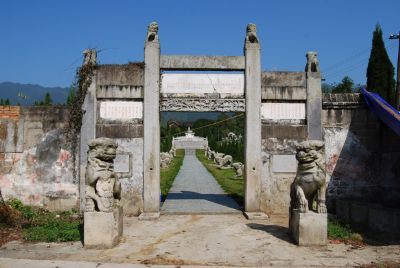
Yiyang Taoshu Mu.
The tomb complex encompasses not only his burial site but also those of his five wives, a stone archway, a memorial pavilion, and various stone sculptures that enhance the solemn atmosphere of the site. Covering an area of approximately 7,560 square meters, the complex is designed with a north-south orientation, reflecting traditional Chinese architectural principles.
Visitors to the tomb can appreciate the intricate stone carvings and inscriptions that honor Tao Shu’s memory, including a notable stele inscribed by the famous calligrapher He Shaoji, which was bestowed by Emperor Daoguang. The site has been recognized as a key cultural relic, gaining provincial protection in 1996, ensuring its preservation for future generations.
Located about 30 kilometers west of Anhua County’s urban center, accessibility to the site typically requires self-driving, as public transport options are limited. The area is also known for its rich tea culture, particularly the local specialty of Anhua black tea, making it an attractive stop for tourists interested in both history and culinary delights. The tomb stands as a monument not only to Tao Shu’s life but also to the broader historical context of governance and reform in 19th-century China, inviting reflection on the enduring impact of his contributions to the region and the nation.
Main Highlights: What to See at Yiyang Taoshu Mu
Yiyang Taoshu Mu, or the Tomb of Tao Shu, is a significant historical site located in the picturesque Anhua County, approximately 30 kilometers from the county center. This remarkable mausoleum, established in 1840, serves as a tribute to the esteemed Qing Dynasty official Tao Shu, who is celebrated for his many contributions to the region and beyond.

Yiyang Taoshu Mu.
Architectural Marvels
The tomb complex spans an impressive area of about 7,560 square meters and is thoughtfully arranged to create a serene atmosphere that reflects the dignity of its occupant. Visitors will find a grand entrance adorned with a stone archway and a “Yubi Pavilion,” which houses an imperial tablet inscribed with calligraphy by He Shao-ji, a renowned Qing dynasty calligrapher. The burial site itself is flanked by stone lions, horses, and other sculptures that enhance its solemnity and grandeur.
Cultural Significance
Tao Shu (1778–1839) played a pivotal role in various reforms during his tenure as Governor-General of Liangjiang. His efforts included advocating for maritime trade, restructuring tax policies on salt, improving flood control measures, and promoting education. Thus, the site not only commemorates his life but also symbolizes the rich cultural heritage of the Hunan province, particularly the Lake Xiang culture that flourished during his governance.
Natural Surroundings
Nestled along the northern bank of the Zi River, the tomb is complemented by its scenic surroundings. Visitors can explore nearby natural attractions, including unique rock formations and lush landscapes, which add to the overall experience of tranquility and reflection.
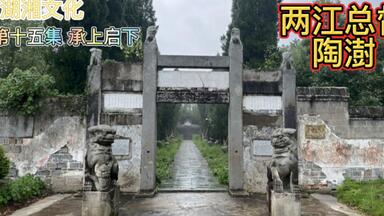
Yiyang Taoshu Mu.
Visiting Information
Access to the tomb is free, and it remains open to the public all day, making it a convenient stop for travelers. However, be prepared to drive, as public transportation options are limited in this rural area. For those who appreciate tea culture, Anhua County is famous for its dark tea, providing an excellent opportunity to sample local flavors after your visit.
In summary, a trip to Yiyang Taoshu Mu offers a rich blend of history, culture, and natural beauty, making it a must-see destination for those exploring the hidden treasures of Hunan Province.
Planning Your Visit: A Practical Guide
The Yiyang Taoshu Mu, or Tao Shu Tomb, is an important historical site located in the scenic Anhua County of Hunan Province, China. This guide provides essential information for visitors planning to explore this fascinating destination.
Location and Accessibility
The Tao Shu Tomb is situated approximately 30 kilometers west of Anhua County, specifically in the town of Xiaoyan. Unfortunately, public transportation options are limited in this rural area, so visitors are encouraged to drive or arrange for private transportation to reach the site. The tomb is accessible year-round, allowing for visits at any time of the day.
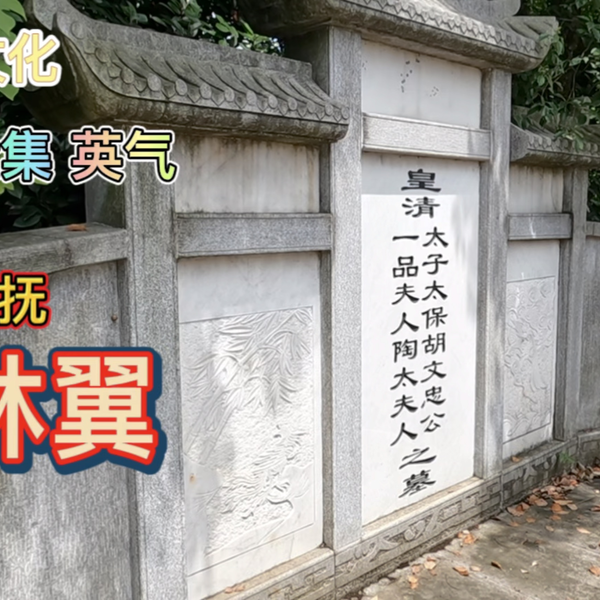
Yiyang Taoshu Mu.
Historical Significance
Constructed in 1840, the tomb is the final resting place of Tao Shu (1778-1839), a prominent historical figure who served as the governor of the Jiangxi and Hunan provinces. Renowned for his contributions to maritime trade, disaster relief, and anti-opium efforts, Tao Shu played a vital role in the development of local culture and governance. The tomb complex spans an impressive 7,560 square meters and includes several significant structures, such as the tomb of Tao Shu, the graves of his five wives, a stone archway, and a memorial pavilion.
Admission and Opening Hours
Visiting the Tao Shu Tomb is free of charge, making it an accessible destination for all. The site is open to the public 24 hours a day, allowing for flexible visiting times. However, it’s advisable to visit during daylight hours for the best experience.
Nearby Attractions and Activities
After exploring the tomb, visitors can enjoy the surrounding scenic beauty of Anhua County, known for its picturesque landscapes and rich cultural heritage. The area is famous for its production of Anhua Black Tea, a must-try for tea enthusiasts. Travelers are encouraged to sample local cuisine and visit nearby attractions, which include parks and natural sites that showcase the stunning rural environment.
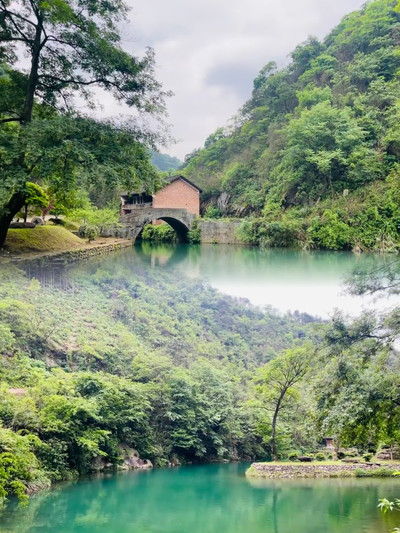
Yiyang Taoshu Mu.
Accommodation and Dining
While there are no accommodations directly at the tomb, Anhua County offers various lodging options. Visitors can find hotels and guesthouses in the town center that cater to different preferences and budgets. For dining, local eateries serve traditional Hunan dishes alongside the region’s famous black tea, providing a genuine taste of the local culture.
Travel Tips
- Transportation: Ensure you have a reliable vehicle or arrange a private driver, as public transport is sparse.
- Best Time to Visit: Consider visiting during spring or autumn when the weather is pleasant and the natural scenery is particularly beautiful.
- Respect Local Customs: As a historical site, it’s important to be respectful and mindful of the cultural significance of the tomb.
By following this practical guide, visitors can make the most of their journey to the Yiyang Taoshu Mu and immerse themselves in the rich history and culture of this remarkable site.
Tickets, Hours, and Booking
Visiting the Yiyang Taoshu Mu, or the Tomb of Tao Shu, is a culturally enriching experience that is completely accessible to all travelers. One of the most appealing aspects of this historical site is that entry is entirely free of charge, allowing visitors to explore its rich heritage without any cost.
The tomb complex is open to the public throughout the day, making it convenient for visitors to plan their visit at their leisure. However, it’s advisable to check local conditions and any potential changes in operational hours before your visit, especially during holidays or special events.
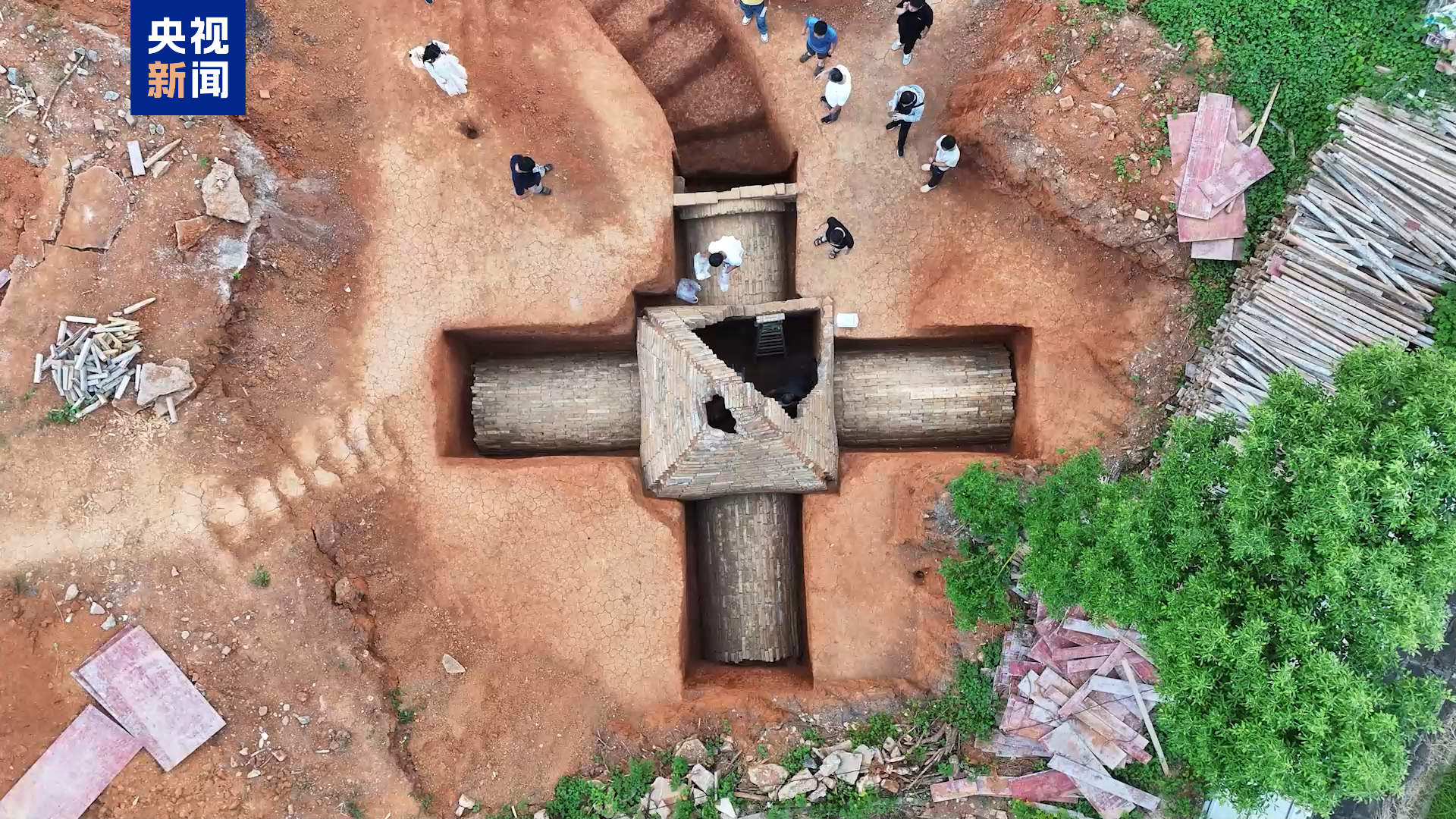
Yiyang Taoshu Mu.
Located about 30 kilometers west of Anhua County’s city center, the tomb is best accessed by car, as public transportation options may be limited. For those planning a trip, consider arranging a rental car or using ride-sharing services to reach this significant cultural landmark smoothly.
As you explore the tomb, take your time to appreciate the historical significance and the serene atmosphere surrounding this tribute to Tao Shu, a prominent figure in Chinese history known for his contributions to maritime trade and governance.
How to Get There
Getting to Yiyang Taoshu Mu, located in Anhua County, requires a bit of planning, as public transportation options are limited. Here’s a comprehensive guide to ensure your journey is smooth and enjoyable.
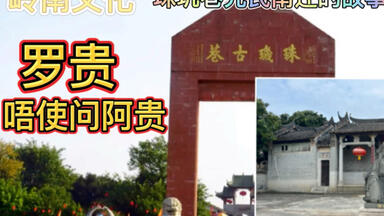
Yiyang Taoshu Mu.
Accessing Yiyang Taoshu Mu
By Car:
The most convenient way to reach Yiyang Taoshu Mu is by car. The site is approximately 30 kilometers west of Anhua County’s city center. If you are driving from the city, take the G56 Hangrui Expressway and follow the signs to Anhua. Once you arrive in Anhua, local signage will direct you to the Taoshu Mu site.
Car Rentals:
If you don’t have access to a vehicle, consider renting a car. Many rental services are available in major cities nearby, including Yiyang and Changsha. Renting a car provides the flexibility to explore the surrounding areas at your own pace.
Taxi Services:
Taxis are available in Anhua County. You can hire a taxi to take you directly to Yiyang Taoshu Mu. Be sure to negotiate the fare beforehand or ask the driver to use the meter, as this will help avoid any misunderstandings.
Public Transport:
Currently, there are no direct public transportation routes to Yiyang Taoshu Mu. However, if you are traveling from larger cities like Yiyang or Changsha, you can take a bus or train to Anhua and then arrange for a taxi or rental car from there.
Nearby Amenities
Accommodation:
For those planning to stay overnight, Anhua County offers various lodging options. It is advisable to book accommodations in advance, especially during peak tourist seasons. Popular choices include local hotels and guesthouses that provide a taste of the region’s hospitality.
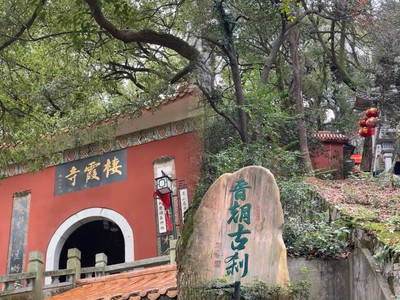
Yiyang Taoshu Mu.
Dining Options:
While visiting, take the opportunity to savor local cuisine. Anhua is particularly known for its specialty, Anhua Black Tea, which you can find in many local restaurants and tea houses.
Conclusion
Visiting Yiyang Taoshu Mu is a journey steeped in cultural significance and natural beauty. With the right transportation arrangements, you can enjoy a seamless experience exploring this historical site and the surrounding areas. Make sure to plan ahead to maximize your visit!
Local Cuisine and Accommodation
When visiting Yiyang Taoshu Mu, it’s essential to plan your food and accommodation options to make the most of your experience in this culturally rich region of China. Located in Anhua County, about 30 kilometers from the county seat, the area offers various local dining and lodging options that can enhance your visit.
Dining Options
Anhua is renowned for its tea, particularly the famous Anhua Black Tea. While exploring the area, be sure to indulge in some local delicacies alongside a cup of this flavorful brew. Here are a few recommended restaurants:
-
Anhua Wyndham Grand Hotel – Haoting Restaurant
This upscale dining venue offers a refined experience with a menu that features local Hunan cuisine. The elegant setting makes it perfect for both casual and special occasions. -
Anhua County Time Courtyard Restaurant
For a more traditional atmosphere, this restaurant provides a cozy dining experience with a focus on authentic Hunan dishes, showcasing the region’s bold flavors. -
Crab Full Xiang
If you’re a seafood lover, this restaurant specializes in fresh crab dishes prepared with local spices. It’s a great place to enjoy a hearty meal after a day of sightseeing. -
Xiè Jiě Snack Shop
For a quick bite, this local eatery offers a selection of snacks and street food, perfect for those on the go or looking to sample various flavors without a sit-down meal. -
Yujia Restaurant
Known for its homemade dishes and warm service, this family-run restaurant is an excellent spot to enjoy a comforting meal in a friendly environment.
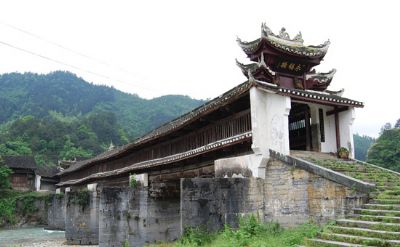
Yiyang Taoshu Mu.
Accommodation Options
While the Taoshu Mu site itself does not offer accommodation, nearby Anhua County has several hotels that cater to different budgets and preferences:
-
Anhua Wyndham Grand Hotel
This luxurious hotel provides modern amenities, including comfortable rooms and spa services. It’s an ideal choice for those seeking a premium experience. -
Anhua Country Inn
A charming option for those looking for a more homely stay, this inn offers a warm atmosphere and personalized service, making it feel like a home away from home. -
Huashan Hotel
Located conveniently near local attractions, this hotel offers comfortable accommodations at a reasonable price, making it suitable for travelers on a budget. -
Motel 168
A popular budget-friendly chain, Motel 168 provides clean and simple accommodations, perfect for travelers looking for basic amenities without breaking the bank. -
Local Guesthouses
For a more authentic experience, consider staying at one of the local guesthouses. These often provide traditional decor, home-cooked meals, and a chance to connect with local culture.
Tips for Your Visit
- Transportation: Since public transportation is limited to the Taoshu Mu, renting a car or arranging for a private transfer is recommended for convenience.
- Local Specialties: Don’t miss out on purchasing Anhua Black Tea as a souvenir, which can be found in various shops throughout the county.
- Timing: Try to plan your visit during the day, as the site is open all day, and it’s best enjoyed in daylight to appreciate its beauty.
With these suggestions, you’re set to enjoy a delightful culinary experience and comfortable stay while exploring the historical significance of Yiyang Taoshu Mu.
Frequently Asked Questions
-
Where is Yiyang Taoshu Mu located?
Yiyang Taoshu Mu, or the Tomb of Tao Shu, is situated in Xiaoyan Town, Anhua County, approximately 30 kilometers from Anhua County seat, on the northern bank of the Zi River. -
What is the historical significance of Tao Shu?
Tao Shu (1778–1839) was a prominent official known for his contributions as the Governor of Liangjiang during the Qing Dynasty. He is celebrated for advocating maritime trade, reforming the salt taxation system, improving flood control, and his efforts in education and law enforcement. -
What are the main features of the tomb complex?
The tomb complex includes the tomb of Tao Shu, the graves of his five wives, a stone archway, a memorial pavilion, and various stone sculptures such as lions and horses, all spread over an area of 7,560 square meters. -
Is there an entrance fee to visit the tomb?
No, visiting Yiyang Taoshu Mu is free of charge. -
What are the visiting hours for the tomb?
The tomb is open for visitation all day, allowing guests to explore at their convenience. -
How can I get to Yiyang Taoshu Mu?
Public transportation is not available. It is recommended to drive to the site or arrange for private transportation, as the area is best accessed by car. -
Are there accommodations and dining options nearby?
Yes, visitors can find accommodations and dining options in Anhua County seat. The local specialty, Anhua black tea, is a delightful option for tea enthusiasts. -
What other attractions are nearby Yiyang Taoshu Mu?
Visitors can explore various scenic spots in the region, including the historical sites along the Zi River and natural formations that are part of the local cultural heritage.
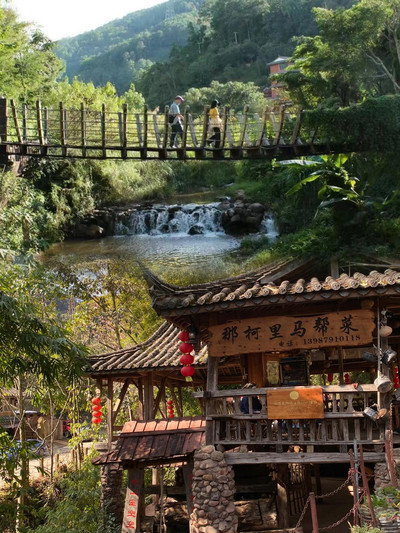
Yiyang Taoshu Mu.
Final Thoughts on Your Trip
Visiting the Yiyang Taoshu Mu is a journey into the heart of Chinese history and culture, offering a unique glimpse into the life and legacy of Tao Shu, an influential figure of the Qing Dynasty. Nestled in the picturesque Anhua County, this well-preserved site not only serves as a solemn resting place but also as a testament to the achievements of a man who played a pivotal role in the development of Hunan’s maritime trade and governance.
As you wander through the beautifully landscaped grounds, surrounded by historic structures and serene nature, you can’t help but reflect on the profound impact of Tao Shu’s contributions. The site invites contemplation and appreciation for the rich cultural narratives that shape this region.
Whether you’re a history enthusiast, a lover of architecture, or simply in search of tranquility, the Taoshu Mu offers an enriching experience that resonates long after you depart. Make sure to take the time to immerse yourself in the local customs, taste the renowned Anhua black tea, and explore the vibrant surroundings of Yiyang. This hidden gem is not just a destination; it’s a journey into the past that inspires a deeper understanding of China’s cultural heritage.
